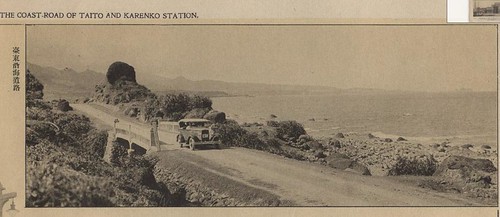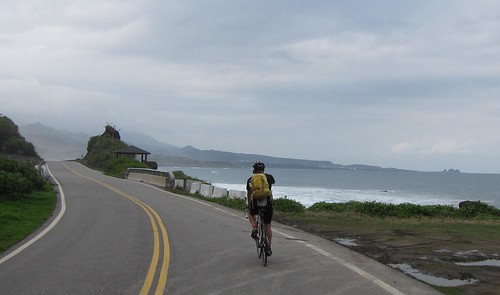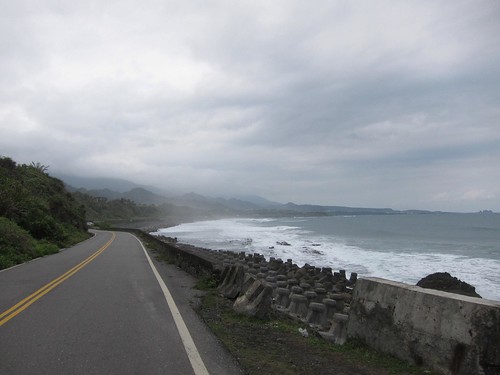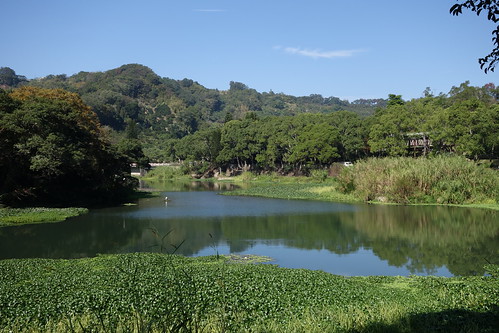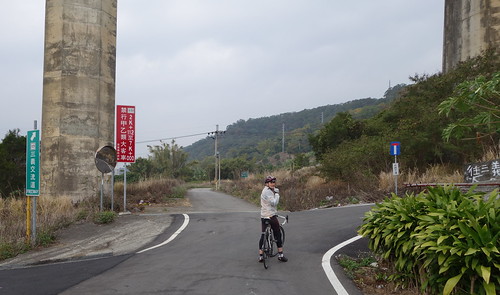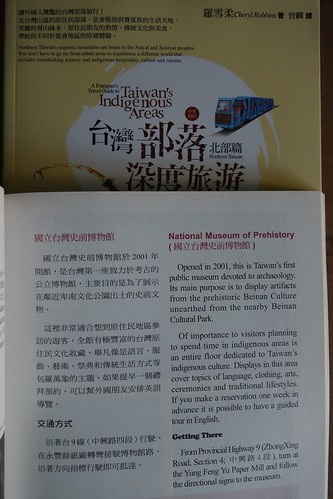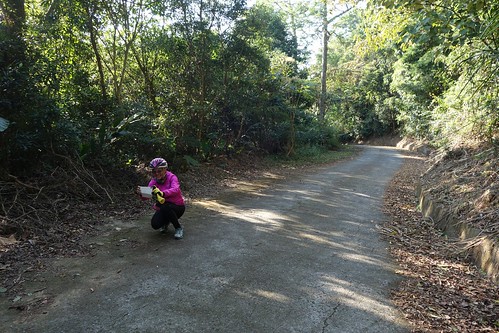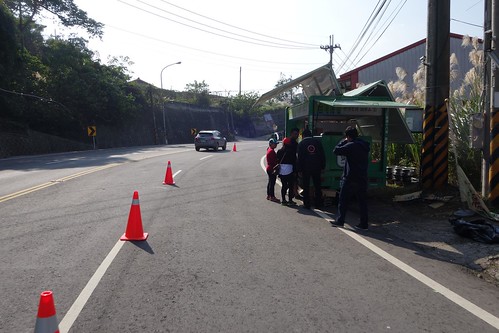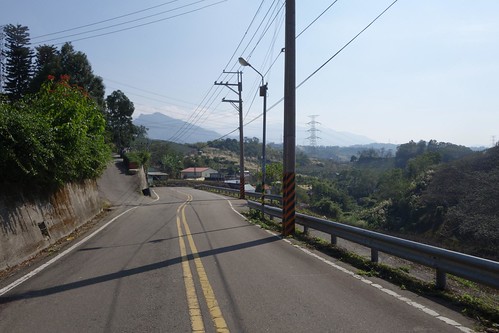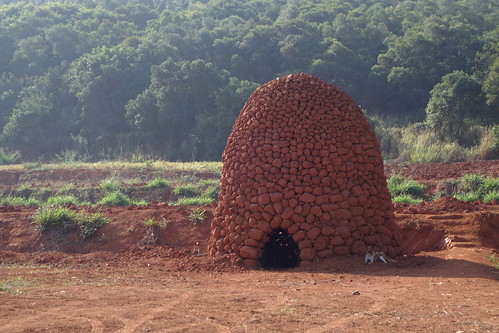Dog finds shade.
Well. My friend Ted reports that on Saturday morning, Judgment Day, when Skynet annihilated the KMT, he was at his brother-in-law's funeral in Hsinchu when the current KMT mayor showed up. The mayor handed out flowers and did the "please vote for me, please vote for me" thing, then left. He was so desperate/thorough, he was visiting funeral parlors the morning of the election (!).
Jon Sullivan and Michal Thim had
a fantastic piece in The National Interest about the elections, seeing them as a new political realignment. Don't miss!! Drinking last night with Thim, while I was still sober enough to understand him, he pointed out to me that in addition to the problems discussed in the post below (
Blindsided), Ma's preference for appointing academics to top posts means that career KMT politicians don't get the chance to develop governing experience in different offices. Nor, I should add, does it develop a cadre of academics with political experience, since many return to academia rather than continue in politics. It really does nothing for the KMT at all. Sure enough, Ma continued the trend by appointing academic and vice premier Mao Chih-kuo as premier. Taiwan News
reports:
...Now several ministers such as current Minister of Transportation and Communications Yeh Kuang-shih and Interior Minister Chen Chwen-jing who are seen as acolytes of Mao are said to be set to stay on through the Cabinet shake-up following last week’s devastating loss by the KMT in elections. Ma Ying-jeou is apparently confident that the gaggle of Mao followers known as the "Transportation Gang" will be helpful in kick-starting the not-so-all-new Cabinet forming up behind Mao. Legislators on both sides are raising objections, however, saying that the choice of Mao to head a Cabinet that will be largely unchanged is not what Taiwan needs.
The "transportation gang" links to Ma, coupled with the story going around that former premier Jiang Yi-hua is going to be sec-gen of the KMT, means that Ma is moving his people into positions of authority in the KMT and government. Note that Jason Hu of Taichung, the former mayor, is often mentioned as a possible chairman candidate for the KMT. Ma and he are often said to be rivals. Color me skeptical that Hu will take Chairmanship over Ma's objections and Hu's own health issues.
Despite the need for reform Ma is circling the wagons. Not a reformist in sight in the heights of the new Administration. It is behavior like this that makes me suspect Ma's real political model is Chiang Kai-shek, not Chiang Ching-kuo.
This also highlights another structural difference between the DPP and the KMT: generally the DPP politicians are cleaner than those of some other parties I could name if I had better libel insurance. In the DPP anyone can rise to real power anywhere in the nation, and ambitious politicians can carve a path to high office. In that case it pays to be clean. For the KMT... my, it's really cold and rainy outside. What was I saying?
Meanwhile Wu Den-yi continues to provide the awesomeness I expected. I knew his light would shine bright as Acting Chair of the KMT. Solidarity.tw
provides the translation:
However, currently when the government does something right no one applauds, and when it does something wrong it’s endlessly criticized, he noted. “This isn’t good—really, it’s like the goodwill between a husband and wife. If the wife is unpleasant to her husband every day, eventually he won’t want to come home, and if he doesn’t come home there’s the danger he’ll take a mistress.”
Yes, watch out people, if you nag too much, the government is going to take a mistress. In case anyone wondered, Wu Den-yi is never going to marry my daughter. Other KMTers were also out in front with wisdom beyond mere human comprehension. Sisy Chen, the talk show host who is allegedly pro-KMT, blamed the Sunflower movement,
complaining that: "the country is heading toward wicked democracy and beyond redemption.” Personally I like young people who are wicked and beyond redemption. I hope Sisy can introduce me to some.
Frozen Garlic
examines the hypothesis that blue voters stayed home and killed the KMT on Saturday. Inconclusive, alas. So far I've been asking my students from Taoyuan if anyone had seriously suggested that the KMT would lose Taoyuan. So far no one has said they knew anyone who said beforehand the KMT would lose Taoyuan. Interestingly, I had a couple of students complain that Taoyuan has the highest bus prices in the nation, and that the owner of the Chungli Bus Company and Taoyuan Bus Company is none other than KMT Taoyuan County loser on Saturday Wu Chih-yang. True?
The China Post talks about pre-election polls, which stank. This raises yet another KMT competence issue -- how come KMT internal polls didn't show that Taoyuan and New Taipei City were in play? If they did, why weren't they listened to? Did the polls suck or were the politicians complacent? Or did they not even bother with such items as expensive professional polls? Any way you look at it, it doesn't reflect well on KMT campaign management.
There have been a few pieces claiming that the Hong Kong protests drove the Taiwan election outcome, like
this one at Foreign Policy that left all us longtime observers shaking our heads. Similarly Kerry Brown, the Aussie academic,
sent around a general wince that not only argued that Hong Kong was an influence but that Ma's trade treaties with China are "pragmatic." Yes, it is 2014 and someone out there is still labeling Ma "pragmatic." They're not pragmatic, Kerry, they are ideologically-driven sellouts. DPP policy to keep industries in Taiwan to the extent possible, legalize their operations in China, and expand business across ASEAN, that was pragmatic.
Fact is, the Hong Kong claim is false. Worse than that, it is also
a claim made by the KMT's official spokesmen in explaining their election loss. Please stop forwarding that bit of KMT blame-the-depraved-immoral young propaganda. The loss was due to the economy and to awful KMT candidates. No one voting against Wu Chih-yang in Taoyuan on Saturday was checking DPP boxes because of Occupy Central. Taiwan rejected 1C2S years ago and Hong Kong only confirmed what everyone here already knows.
Ben has a good discussion of framing issues in his post
Reflections:
This illustrates how intense the battle over just framing the impact, positive or negative, of Ma’s cross strait policies is. For those who dislike or criticise those policies (including myself), a major hurdle has just been dismantling the chimerical aura of legitimacy, success, and authority those policies have been given by a supine international press that has mindlessly repeated the mantra of Warmest-Ever Cross-Strait Ties ™ for the past six years. But were the election results really mostly a protest against Ma and his China policies? I don’t think the evidence is there yet to suggest this is the case, regardless of how much some people would like it to be so...
Fortunately Foreign Policy made up for that laffer with a good one from Chieh-ting Yeh of Ketagalan media fame on the
need for government structural reform in Taiwan. There's been some talk of implementing a parliamentary system...
Unfortunately Washington is still clueless. DPP moves into power at the local level -- they aren't making foreign policy, guys -- but lots of whipped up fear is appearing that ZOMG. IT. COULD. BE. INDEPENDENCE., the DPP could "increase tensions" as
Taipei Times reports. The DPP cannot simply declare independence -- with the legislature, the police, the media, the army, and the bureaucracy all controlled by the KMT? C'mon. ADDED: Maddog reminds me that the DPP policy is that a change of status requires a referendum.
Nor does the DPP increase tensions. What poppycock! Folks, China is in control of tensions, and increases or decreases them in order to influence Washington and transfer tension from the Beijing-Washington relationship to the Washington-Taipei relationship.
Tensions are a tool of Chinese policy. Every time someone in official Washington refers to Taiwan causing tensions, it's a strategic victory for Beijing. Once again, let's say it:
The cause of tension in the Taiwan Strait isn't Taiwan, but China's desire to annex Taiwan.
_______________
Daily Links:
_______________________
[Taiwan] Don't miss the comments below! And check out my blog and its sidebars for events, links to previous posts and picture posts, and scores of links to other Taiwan blogs and forums!



